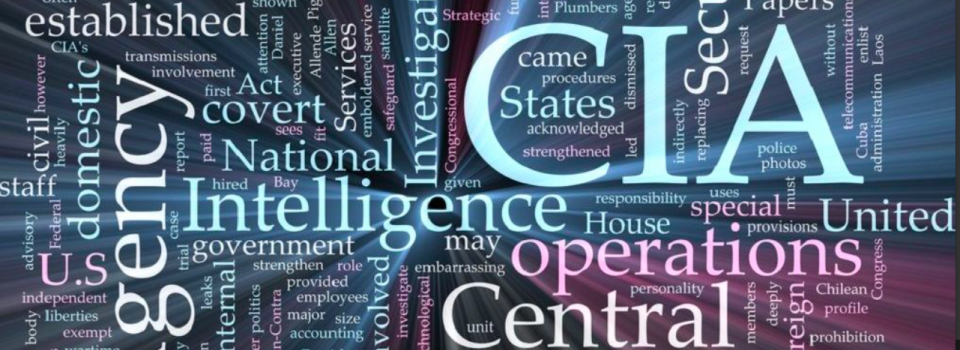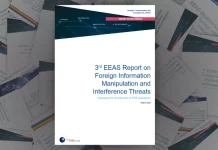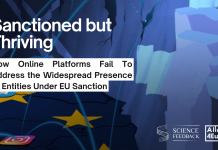
Author: Anton Shekhovtsov
Abstract
To promote their message about the decadent West, the Russian media have engaged with activists and politicians from the fringes of socio-political life in the West, namely the far right, far left, conspiracy theorists and isolationists who would be ideologically inclined to corroborate Moscow’s line of argument.
In the course of time, the Russian media also established structural relations with the EU-based pro-Russian media managed by far right activists, and this article discusses these relations with a special focus on France, Italy and Slovakia.
Anton Shekhovtsov analyses the relationship between the Russian media and far-right movements in France, Italy and Slovakia.
Paper
Pro-Kremlin “Re-information” Efforts: Structural Relations between the Russian Media and the European Far Right
Anton Shekhovtsov
Introduction
After the five-day Russian-Georgian war in August 2008, the Russian authorities realised that they had easily won the war against Georgia, but had failed to convince the West of the alleged legitimacy of their actions. Official Moscow understood this as a failure of its soft power which can be defined, in James Sherr’s terms, as “the ability to influence the preferences and behaviour of others through affinity or attraction”.1 But Moscow’s fiasco was also understood as a failure of its international, multi-language media resources, in particular, the TV channel “Russia Today” and the radio station “Voice of Russia” (VoR). Thus, since 2008-2009, Russian state-controlled international media decided to change their tactics: they would still employ soft power instruments to try to convince external audiences that Russia’s policies were justified, but they would also start pushing the message that the West could not criticise Russia’s actions because it was decadent, plagued by same-sex marriages, moral crisis and failing multiculturalism.
To promote the message about the decadent West, the Russian media have engaged with activists and politicians coming from the fringes of socio-political life in the West, namely the far right, far left, conspiracy theorists and isolationists who would be ideologically inclined to corroborate Moscow’s line of argument.2
In the course of time, the Russian media also established structural relations with the EU-based pro-Russian media managed by far right activists, and this article discusses these relations with a special focus on France, Italy and Slovakia.
France
On 5-7 July 2012, Russia’s central state news agency ITAR-TASS held a summit titled “Global Media: Challenges of the 21st Century”. As the agency stated, “over 300 top managers presenting 213 media outlets from 102 countries”, including “the leaders of such major news agencies, TV and radio channels as Associated Press, BBC, Reuters, NBC, Al Jazeera, Kyodo, Xinhua and MENA” arrived in Moscow “to discuss pressing problems facing the media society”.3 President Vladimir Putin and Russian Prime Minister Dmitry Medvedev, as well as UN Secretary General Ban ki-Moon via a video-link, greeted the participants of the summit.
The summit was also visited by Gilles Arnaud, Guillaume Tastet and Joseph-Marie Joly, who represented Agence2Presse, a branch of the French association Groupe EDH Communication working in the media sphere. The association is headed by Arnaud and, apart from Agence2Presse, incorporates TVNormanChannel, Agence2Presse and Editions d’Héligoland – all headed by the same Arnaud. He is a former regional advisor to the major French far right party National Front (Front National, FN) in Upper Normandy and contemporary member of the far right Party of France (Parti de la France, PDF) that was founded in 2009 and united many former members of the FN.
At the summit in Moscow, Arnaud and his colleagues had an opportunity to establish contacts with the VoR and Russia’s major news agency ITAR-TASS. Upon his return to France, Arnaud implied that Groupe EDH Communication had received funding from Russia for the development of a new TV channel in France, saying that it was “easier to work in Russia”, because “when the decision is taken, once the project is studied and human contacts made, funds are made available. We can focus on the mission, without wasting time on excessive politeness or begging for the next instalment of funding”.4
Russia’s Ambassador to France Aleksandr Orlov helped arrange the signing of a contract between Arnaud and the Russian state media. In September 2012, Arnaud launched the web-based TV channel under the ingenuous name “ProRussia.TV”, for which he received €115,000 for the first year of operation and €300,000 for the next one.5 With servers located in Russia and brandishing a logo closely resembling the logo of Russia’s ruling party “Yedinaya Rossiya” (United Russia), ProRussia.TV became yet another branch of the Groupe EDH Communication and was a product of collaboration between Agence2Presse, which provided technological infrastructure, ITAR-TASS, the Russian news agency Interfax, VoR and the Iranian Mehr News Agency.6
Arnaud referred to ProRussia.TV and Agence2Presse as agencies of “re-information”. As explained by the author of this concept, Jean-Yves Le Gallou, “re-information” implies propaganda of “alternative views” which can be applied to all far right media: “Political correctness is imposed on the political, administrative and intellectual spheres through the traditional media. The principle of re-information is therefore to provide information and alternative points of views facing such a censorship”.7
Apart from Arnaud, the editorial staff of ProRussia.TV included, in particular, Alexandre Ayroulet, an employee of Editions d’Héligoland and a former head of the far right National Front of Youth (Front national de la jeunesse); Joseph-Marie Joly, a spokesperson of the identitarian Normandy Wave (Vague Normande) group; and Sylvie Collet, a former member of the FN, treasurer of the Editions d’Héligoland, and – like her husband Arnaud – contemporary member of the PDF.8
ProRussia.TV developed a strong partnership with the French service of the VoR. They shared materials, some members of their staff worked for both services, and Sylvie Collet presented a weekly news bulletin produced in collaboration with the VoR.
The content of ProRussia.TV’s programmes was unequivocally pro-Kremlin, anti-American and very critical towards the workings of democracy in the EU. The TV channel broadcast interviews with EU-based far right and Eurosceptic politicians, as well as representatives of the Russian establishment such as Yevgeniy Fyodorov, chairman of the Committee on Economic Policy and Entrepreneurship of the State Duma and leader of the violent, extreme right National-Liberation Movement (Natsional’no-osvoboditel’noe dvizhenie). Despite the similarities between ProRussia.TV and the French VoR, the former was more radical in its editorial policy and sometimes engaged with far right politicians, such as the FN’s Marion Maréchal-Le Pen or the leader of the Hungarian far right Jobbik party Gábor Vona, whom the French VoR would not have.
A few weeks after he founded ProRussia.TV, Arnaud attempted to launch yet another TV project called “Notre Antenne”, in collaboration with Philippe Milliau, a co-founder of the Identities Network (Réseau identités), a “community that defends the identity of the white peoples, [and] regional, national and European identities”.9 Milliau was also a regional advisor to the FN in Île-de-France,10 then left this party for the far right National Republican Movement (Mouvement National Républicain), and, after 2008, became involved in the identitarian movement.
On 22 September 2012, Arnaud and Milliau registered the web-based Notre Antenne TV in order to, in Milliau’s words, “defend our children against debilitating curricula; against philosophical theories, such as gender, presented as scientific dogmas; against the excesses of globalisation and multicultural society”.11 The Notre Antenne TV project involved several far right politicians: Yvan Blot, Jean-Yves Le Gallou, Michel Marmin, Roger Holeindre, Pierre Descaves, and Paul-Marie Coûteaux among others.12
The Notre Antenne TV project, however, proved to be short-lived, and Milliau moved on to another far right TV project. As he explained, some of the members of Notre Antenne TV were not happy with taking Russian money and wanted to be independent of the Kremlin’s political agenda.13 This unhappiness, however, did not imply that some of the staff of the Notre Antenne TV were are anti-Russian or critical of the Kremlin’s foreign policies. The decision to distance themselves from the Russian funding most likely stemmed from a desire to shift the balance in the symbolic power relations within the political agenda of the TV channel. Direct Russian funding would reveal its primarily pro-Kremlin focus, but the idea was to present the new TV project as pro-French rather than anything else without excluding, however, the pro-Russian aspect.
These considerations resulted in the creation of the web-based TV Libertés, launched in the beginning of 2014. Apart from Milliau, Blot and Le Gallou, the following far right activists became involved in the project: Robert Ménard, a co-founder of the international NGO Reporters Sans Frontières and mayor of Béziers who revealed his far right sympathies in 2013; Martial Bild, a former member of the FN and contemporary member of the PDF; and Philippe Conrad, a historian and member of New Right think-tank Research and Study Group on European Civilization, better known under its French acronym GRECE.
Without being overtly subservient to Russian foreign policy – as ProRussia.TV seemed to be – TV Libertés nevertheless promoted unequivocally pro-Russian views on the international relations. In the beginning of September 2014, TV Libertés was the only TV channel allowed to cover a meeting with Chairman of the State Duma Sergey Naryshkin held at the Russian Embassy in Paris14 and organised by the French-Russian Dialogue Association co-chaired by Thierry Mariani, a member of the conservative Union for a Popular Movement (Union pour un mouvement populaire), and contemporary Russian Railways CEO Vladimir Yakunin.15 Furthermore, when the separatist organisations in Eastern Ukraine “Donetsk People’s Republic” and “Luhansk People’s Republic” held, on 2 November 2014, illegitimate “parliamentary elections”, TV Libertés accompanied a French “election monitor”, Jean-Luc Schaffhauser of the Marine Blue Gathering (Rassemblement bleu Marine), a right-wing populist coalition created by the FN’s president Marine Le Pen.16
At the end of 2013, Putin ordered the establishment of an international information agency called “Rossiya Segodnya” (translated as “Russia Today” but not be confused with RT) “to provide information on Russian state policy and Russian life and society for audiences abroad”.17 The same order discontinued the VoR (although its website continued to operate before moving to the portal of the Russian online news service Sputnik), which automatically implied suspension of funds for ProRussia.TV. The last programme of the TV channel was aired in spring 2014, and the website of ProRussia.TV was disabled in autumn 2014. Its Facebook page went silent in April 2015.
Italy
In Italy, the VoR was also involved in cooperation with the far right Northern League (Lega Nord, LN), albeit on a smaller scale than in the French case.
In February 2014, Max Ferrari, a LN member and contributor to the Italian service of the VoR, initiated the creation of the Lombardy-Russia Cultural Association (Associazione Culturale Lombardia Russia, ACLR) directly associated with the LN. The president of the ACLR is Gianluca Savoini, a spokesman for the LN’s leader Matteo Salvini, while its honorary president is Aleksey Komov, the official representative of the international “pro-family”, homophobic association “World Congress of Families” in Russia. In Russia, Komov is also closely associated with Russian ultranationalist oligarch Konstantin Malofeev who has provided financial assistance to pro-Russian separatists in Eastern Ukraine and, for this reason, was sanctioned by the EU.18
The ACLR openly admits that its views “fully concur with the worldview of the President of the Russian Federation enunciated at the meeting of the Valdai club in 2013, and can presented in three words: Identity, Sovereignty, Tradition”.19 By slamming the “ongoing misinformation” about Russia in the mainstream media, Ferrari stated that the ACLR would try to “re-inform” the public through its website; in doing so, it would “take advantage of the collaboration with important Russian media, in particular with an official organ such as the Voice of Russia”.20 The ACLR lists the Italian service of the VoR as its “official partner”, while the website of the Italian VoR used to have a link to the ACLR’s website on its front page.21
The website of the ACLR has published articles praising Putin as the great leader of Russia and presenting the Europeans with a choice between “Eurabia”,22 a project that would lead to “the denial of Europe”, and Eurasia from Brittany to Vladivostok that would successfully compete with the US an China.23 Thus, it was not surprising that the website also published several interviews with another associate of Malofeev’s, namely Russian Neo-Eurasianist activist Aleksandr Dugin, who described the LN’s leader Matteo Salvini as “the only politician who [could] represent the real interests of the Italians”.24 Moreover, when the ACLR started establishing branches across northern Italy, Dugin became an honorary president of the Piedmont-Russia Cultural Association (Associazione Culturale Piemonte-Russia).
The materials on the ACLR’s website largely followed the changes in the relations between Russia and the West. At the end of the revolution in Ukraine, the ACLR called for the division of Ukraine into “Ukrainian” and “Russian” parts; it then attempted to legitimise the illegal referendum in Russia-occupied Crimea (the head of the LN’s foreign relations department, Claudio D’Amico, was one of the international observers at the “referendum”) and, later, to justify its annexation by Russia. After Western countries introduced sanctions against Russia, the ACLR published numerous articles condemning the sanctions and calling to lift them.
In October 2014, on their way to Moscow, a joint delegation of the LN and the ACLR visited Russia-annexed Crimea and allegedly reached an “agreement on mutual exchange of information” with the “Ministry of Domestic Policy, Information and Communications of Crimea” and the Kryminform news agency.25 However, by the time of writing, this alleged cooperation had produced no results.
Slovakia
Structural relations also seem to be developing between the Slovak magazine Zem & Vek and different Russian actors. Zem & Vek is a typical conspiracy theory magazine with a focus, as Matúš Ritomský argues, on three particular themes: politics, a search for social alternatives, and a return to nature.26 The magazine is openly anti-Western and pro-Russian, as well as being particularly obsessed with “exposing” the “power of Jews and Americans”, the LGBT “conspiracy”, and Slovak mainstream media, who are slammed as “mouthpieces of Zionism, Americanism, globalism, defamation of national values, primacy of the minority rights over the majority rights, [and] multiculturalism”.27
In May 2014, two editors of the magazine, Tibor Eliot Rostás and Dušan Budzák, met with Russia’s contemporary Ambassador to Slovakia Pavel Kuznetsov, and later published an interview with him.28 In this interview, Kuznetsov, in particular, argued that the foreign policy of the Soviet Union had been based on the promotion of communist and socialist ideas internationally, and that the Soviet Union had paid money to the communist and socialist parties in the Warsaw Pact countries, as well as to the developing countries that had attempted to carry out socialist revolutions. With the demise of the Soviet system, Kuznetsov maintained, this practice was abandoned, but the Americans started employing the same methods which the US accused the Soviet Union of employing: instigating revolutions (“colour revolutions”), financing various NGOs, and promoting its own vision of democracy internationally.29
In June 2015, an audio file was leaked that contained an unedited version of Kuznetsov’s interview for Zem & Vek.30 It turned out that the magazine had not published specific parts of the conversation. Two major discussions were left out in the published version: (1) Kuznetsov’s extended discussion of Russian foreign policy (2) the editors’ attempts to establish closer relations with Russian institutions.
While talking about Russia allegedly abandoning the practice of “interfering in the internal affairs of other states”, Kuznetsov expressed his regret and voiced his hope that Russia would return to this practice. When asked by the editors whether Russia would potentially support a political force as yet outside the Slovak political establishment that would proclaim Russian-Slovak “Slavonic brotherhood” as its official political platform, Kuznetsov said that Russia would “eventually return to the necessity of a more active support – not simply on the political level – of those political forces in certain countries which favour cooperation with Russia”. Kuznetsov continued: “I think that, in the coming years, there will be an increasing support from the Russian side for the political forces in other countries, including Slovakia, which are loyal to Russia. And also support for the media”.31
The editors of Zem & Vek also mentioned that they were thinking of expanding their media business and asked Kuznetsov whether they could receive any support of their endeavours from Russia. In reply, Kuznetsov said that he would be glad “to write to Moscow”, “to people who deal with these questions”, and recommend establishing contacts between Zem & Vek and “the relevant Russian structures”.32
In September 2014, Kuznetsov was replaced by Aleksey Fedotov as Russia’s Ambassador to Slovakia, and the editors of Zem & Vek established contacts with him too. Fedotov introduced Rostás and Budzák to Armen Oganesyan, the editor of the journal Mezhdunarodnaya zhizn’ that is officially associated with Russia’s Ministry of Foreign Affairs (MFA). Russian Foreign Minister Sergey Lavrov heads the board of the journal, and Oganesyan is an unsalaried advisor to the foreign minister. This meeting resulted in Rostás’s and Budzák’s visit to Moscow in June 2015 where, upon the initiative of the Russian Embassy in Slovakia, the editors of Zem & Vek presented their idea of creating a media holding at a roundtable held at the editorial office of Mezhdunarodnaya zhizn’. Other participants included “representatives of non-governmental organisations and foundations, as well as representatives of the governmental structures”, while the roundtable was held “in partnership with the Union of Oil & Gas Producers of Russia”.33
During his presentation at the roundtable, Budzák said that they were trying to expand their media business and launch a media house that would include not only the magazine, i.e. Zem & Vek, but also TV and radio stations, a daily newspaper, and online media. This media holding, as Budzák argued, would “work against the mainstream that was largely financed by the American side and in the interests of NATO”.34 In response to this presentation, Vasiliy Likhachev, MP from the Communist Party of the Russian Federation, said that their project would be carried out, implying possible support from the Russian side. He added that activities such as theirs were “much needed especially against the background of the reports that are being produced in Europe on Brussels’ orders. One needs to compete for the public opinion and the state of minds in Europe. And here we are pragmatic allies with you”.35
A report on the roundtable published by the Russian International Affairs Council, affiliated with Russia’s MFA and Ministry of Education and Science, noted that the participants also discussed prospects of “constructing” “a Russia-friendly area in Central and Eastern Europe”.36
However, by the time of the writing, the idea of Zem & Vek to build a media holding has not been implemented, but the meetings and talks that Rostás and Budzák held with Russian representatives of different levels testify to the presence of mutual interest in developing structural relations between Zem & Vek and particular Russian groups.
Conclusion
The production of European far right media projects associated with the Russian state-controlled media through structural relations is hardly different from the Russian international media such as RT, Voice of Russia or Sputnik. The European far right media projects essentially promote the message that Western mainstream, liberal-democratic leadership is failing Western societies in the areas where Putin’s Russia succeeded.
Not all the media projects initiated by the far right with the support from the Russian side have succeeded. The French ProRussia.TV eventually failed because it seemed to be too much dependent on Russian funding directly related to the VoR: when the VoR was discontinued, ProRussia.TV ceased to exist too. Structural relations in Slovakia seem to develop slowly, as the Russian authorities prefer to work with more influential figures such as Prime Minister Robert Fico. In Italy, however, the Lombardy-Russia Cultural Association is expanding, not only because it is directly linked to the established far right party, the Northern League, but also it appears to be backed by Russian oligarch Konstantin Malofeev.
- 1. James Sherr, Hard Diplomacy and Soft Coercion: Russia’s Influence Abroad (London: Chatham House, 2013), p. 15.
- 2. See Anton Shekhovtsov, “Bringing the Rebels”: European Far Right Soldiers of Russian Propaganda (London: Legatum Institute, 2015), https://lif.blob.core.windows.net/lif/docs/default-source/publications/bringing-the-rebels-by-anton-shekhovtsov-september-2015-pdf.pdf
- 3. “Executives of leading media flock to Moscow for World Media Summit”, ITAR–TASS, 4 July (2012), http://itar-tass.com/en/archive/678277
- 4. “C’est toujours à l’Est que se lève le monde”, Le Magazine National des Seniors, No. 16 (2012), pp. 4-6 (6).
- 5. Vincent Jauvert, “Poutine et le FN: révélations sur les réseaux russes des Le Pen”, L’OBS, 27 November (2014), http://tempsreel.nouvelobs.com/politique/20141024.OBS3131/poutine-et-le-fn-revelations-sur-les-reseaux-russes-des-le-pen.html
- 6. See http://www.livestream.com/prorussiatv
- 7. Jean-Yves Le Gallou quoted in Adrien Sénécat, “Wikistrike, Quenel+, TV Libertés: dans la nébuleuse des sites de ‘vraie information’”, L’Express, 3 December (2014), http://www.lexpress.fr/actualite/politique/wikistrike-quenelle-liberte-tv-dans-la-nebuleuse-des-sites-de-vraie-information_1628541.html
- 8. See also Stéphane Jourdan, Anya Stroganova, “Quand la Russie flirte avec le FN”, Slate, 16 July (2013), http://www.slate.fr/story/75047/russie-fn
- 9. See https://web.archive.org/web/20160202053814/http://www.reseau-identites.org/
- 10. Madeleine Rebérioux, L’Extrême droite en questions: actes du colloque (Paris: Études et documentation internationales, 1991), p. 49.
- 11. “Philippe Milliau: Il nous faut une télévision internet alternative ouverte à tous les patriotes”, Federation Front National de Charente-Maritime, 22 October (2012), http://ripostelaique.com/philippe-milliau-il-nous-faut-une-television-internet-alternative-ouverte-a-tous-les-patriotes.html
- 12. Olivier Faye, Abel Mestre, Caroline Monnot, “La télé identitaire, la drôle d’agence de presse et le ‘soft power’ russe”, Droite(s) extrême(s), 29 January (2013), http://droites-extremes.blog.lemonde.fr/2013/01/29/la-tele-identitaire-la-drole-dagence-de-presse-et-le-soft-power-russe/
- 13. “Une autre information: naissance de TV Libertés”, Observatoire des Journalistes et de l’Information Médiatique, 17 February (2014), http://www.ojim.fr/une-autre-information-naissance-de-tv-libertes/
- 14. Although the Council of the European Union imposed, on 17 March 2014, a travel ban and asset freeze against Naryshkin as one of the Russian politicians responsible for actions which undermined or threatened the territorial integrity, sovereignty and independence of Ukraine, he was able to travel to Paris on the invitation of the Parliamentary Assembly of the Council of Europe.
- 15. François Clemenceau, “Ce lobby qui défend Poutine”, Le Journal du Dimanche, 7 September (2014), http://www.lejdd.fr/International/Europe/Ce-lobby-qui-defend-Poutine-685316
- 16. I am grateful to Anna Stroganova of the Radio France Internationale for sharing these observations with me.
- 17. Vladimir Putin, “Ukaz o merakh po povysheniyu effektivnosti deyatel’nosti gosudarstvennykh SMI”, Prezident Rossii, 9 December (2013), http://kremlin.ru/news/19805
- 18. Courtney Weaver, “Malofeev: The Russian Billionaire Linking Moscow to the Rebels”, Financial Times, 24 July (2014), http://www.ft.com/cms/s/0/84481538-1103-11e4-94f3-00144feabdc0.html
- 19. “L’Associazione Lombardia Russia”, Associazione Culturale Lombardia Russia, 5 February (2014), http://www.lombardiarussia.org/index.php/associazione/lo-scopo
- 20. “Nasce ‘Lombardia-Russia’”, La Prealpina, 20 February (2014).
- 21. See https://web.archive.org/web/20140626014219/http://italian.ruvr.ru/
- 22. “Eurabia” is a concept popularised by Bat Ye’or (pen name of Gisèle Littman) that means “a gradual overtaking of Europe by Muslim populations.
- 23. Max Ferrari, “Eurasia o Eurabia: UE al bivio”, Associazione Culturale Lombardia Russia, 4 June (2014), http://lombardiarussia.org/index.php/component/content/article/57-categoria-home-/300-eurasia-o-eurabiaue-al-bivio
- 24. Antonio Rapisarda, “L’ideologo di Putin lancia la Lega: ‘Ultima speranza per l’Italia’”, Il Tempo, 23 June (2015), http://www.iltempo.it/politica/2015/06/23/l-ideologo-di-putin-lancia-la-lega-ultima-speranza-per-l-italia-1.1429396
- 25. “Soglashenie o sotrudnichestve s Ministerstvom vnutrenney politiki, informatsii i svyazi Respubliki Krym i agentstvom novostey Krym Inform”, Associazione Culturale Lombardia Russia, 11 November (2014), http://ru.lombardiarussia.org/index.php/component/content/article/57-categoria-home-/257-2014-11-11-12-44-23
- 26. Matúš Ritomský, “Zem a Vek nebezpečných konšpirácií”, Priestori, 25 September (2014), http://www.priestori.sk/zem-a-vek-nebezpecnych-konspiracii-priestori/
- 27. Anton Smataník, “Slovenskí vojnoví Štváči”, Zem & Vek, July (2014), pp. 37-39 (37).
- 28. Tibor Eliot Rostás, “Slovanská vzájomnosť je aj ruským záujmom”, Zem & Vek, June (2014), pp. 46-53.
- 29. Ibid., pp. 47-48.
- 30. “Rostas Budzak Kuznecov.mp3”, Ulož.to, http://www.ulozto.sk/xoqiiKVd/rostas-budzak-kuznecov-mp3
- 31. Ibid.
- 32. Ibid.
- 33. Sergey Filatov, “‘My nakhodimsya v epokhe informatsionnoy voyny’, – govoryat gosti iz Slovakii”, Mezhdunarodnaya zhizn’, 6 June (2015), https://interaffairs.ru/news/show/13270
- 34. “Zem a Vek: Naše ambície nemajú hranice”, Nie je to tak, 23 June (2015), http://www.niejetotak.sk/zem-a-vek-nase-ambicie-nemaju-hranice/
- 35. “Zhurnalisty iz Slovakii Dushan Budzak i Tibor Rostas – gosti zhurnala ‘Mezhdunarodnaya zhizn’’”, Mezhdunarodnaya zhizn’, 16 June (2015), https://interaffairs.ru/news/show/13319
- 36. “Roundtable on Constructing a Russia-Friendly Territory in CEE”, Russian International Affairs Council, 4 June (2015), http://russiancouncil.ru/en/inner/?id_4=6072





